- English
- Español
Country Visits
2018
Peru, October 29 - 31, 2018
The Inter-American Commission on Human Rights (IACHR) carried out a working visit to Peru between October 29 and 31, 2018 in order to follow up on the reform projects of the country's justice system and to obtain information related to the situation of the human rights of women, girls and adolescents. The Commission's delegation was made up of Commissioner Margarette May Macaulay, President of the IACHR and Rapporteur on the Rights of Women, by Commissioner Joel Hernández García, Country Rapporteur on Peru, and by specialists from the Executive Secretariat of the IACHR .
Within the framework of this visit, the IACHR held working meetings with representatives of various State entities, including meetings with the Executive, Judicial, and Legislative branches; with representatives of civil society organizations; with academic sectors of Peru; and with people who are victims of violations of their human rights.
Similarly, the IACHR participated in various events to promote inter-American standards on human rights. Commissioner Macaulay participated in the seminar “Women and Constitutional Justice. 25 years of the regulation of violence against women ”, organized by the Center for Constitutional Studies of the Constitutional Court, and in the discussion“ Judicial Corruption and access to justice for women, girls and adolescents in Peru ”, at the invitation of Demus -Peru and CLADEM-Peru. For his part, Commissioner Hernández participated in the event on "Corruption and the justice system: pending reforms" in the framework of the celebration of the 20 years of the Master of Laws with a mention in Jurisdictional Policy at the Pontificia Universidad Católica del Perú.
Colombia, May 15 - 18, 2018
The IACHR made the second working visit to Colombia in May 2018. The Commission identified Colombia as a key country to visit due to the multiple forms of violence and discrimination faced by women, girls, and adolescents. In particular, after the approval of the Peace Agreement in Colombia, the IACHR received multiple reports of deeply worrying acts of violence against women human rights defenders from indigenous and Afro-Colombian communities, as well as information related to the increase in violence against women, girls, and adolescents in the territories, were left vacant after the withdrawal of illegal armed groups. Given the interest of the Colombian authorities and civil society in welcoming the AICHR, several academic events, visits, and meetings with officials were organized within the framework of this visit, which took place between May 15 and 18, 2018 in the cities of Cali and Bogota.
Regarding the visit, the IACHR identified key institutions and public officials to meet with and key issues to address. As a result, the IACHR met with state representatives, civil society organizations, and international agencies in charge of the rights of women and children. The IACHR participated in a series of events organized by the academic sector and by civil society organizations.
2017
El Salvador, November 20 - 22, 2017
The Inter-American Commission on Human Rights (IACHR) carried out a working visit to El Salvador from November 20 to 22, 2017. The purpose of the visit was to monitor the human rights situation in El Salvador and, in particular, the situation of human rights. of women and girls. The delegation was made up of Commissioner Margarette May Macaulay, in her capacity as Rapporteur of the IACHR for the Rights of Women and Country Rapporteur, as well as specialists from the Executive Secretariat of the IACHR.
The IACHR held working meetings with various authorities of the three powers of the State, with the objective of learning about the current situation of human rights in the country and, especially, the situation of the rights of women and girls in El Savior. In meetings with representatives of the State, the IACHR obtained information on legislation, national policies, and mechanisms for the protection of the rights of women and girls.
The IACHR delegation held a meeting with representatives of various United Nations agencies present in the country. At this meeting, topics related to the consequences of the context of citizen insecurity in the country and the current panorama of the rights of women and girls in El Salvador were discussed. In a particular way, the current situation regarding sexual and reproductive rights, the political participation of women, the situation of vulnerability of migrant women, and the challenges that girls and adolescents continue to face in the country were addressed.
Guatemala, July 31 to August 4, 2017

The Inter-American Commission on Human Rights (IACHR) made an on-site visit to Guatemala from July 31 and August 4. The IACHR observed on the ground a serious situation of inequality and discrimination that particularly affects indigenous people; women; displaced persons; lesbian, gay, bisexual, trans, and intersex persons (LGBTI), Afro-descendant persons, persons with disabilities; persons deprived of liberty; and children and adolescents.
The IACHR verified the persistence of multiple factors that contribute to a situation of structural impunity. In addition, the Commission received information regarding the State's authorization of extractive industry activities and projects and development of natural resources in indigenous peoples' territories, without prior consultation to obtain consent. The IACHR also received information on violence against journalists, as well as on the concentration of media ownership. The Commission drew attention to the particularly vulnerable situation that women in Guatemala continue to face, especially indigenous women. Likewise, the IACHR received with great concern the lack of recognition of Afro identity in the country. In relation to the rights of LGBTI persons, the Commission expressed its concern regarding the draft "Law for the Protection of Life and Family," which seeks to ban teaching about sexual diversity and reaffirms the nature of marriage as a right exclusive to persons of the opposite sex. The IACHR received extensive information on how multiple causes have led to the forced displacement of tens of thousands of people, contributing to the crisis of displaced persons and refugees. As to the situation of persons deprived of liberty, the prison system is mainly characterized by overcrowding, excessive use of pretrial detention, deplorable detention conditions.
The IACHR visited the Casa Para Niños Aleluya; the Juvenile Center for the Deprivation of Liberty for Men (CEJUPLIV “Stage II”), in San José Pinula; the Youth Center for the Deprivation of Liberty for Women (CEJUPLIM- “Gorriones”); the jails located in Basement 1, of the Tower of Courts of the Judicial Organism; the Santa Teresa Preventive Detention Center for Women; the Women's Guidance Center (COF), the Pavón Penal Rehabilitation Farm, and the “Federico Mora” National Mental Health Hospital.
Finally, the IACHR found that, despite the important progress in the fight against corruption and impunity led by the International Commission against Impunity in Guatemala (CICIG) and the Public Prosecutor's Office, as well as the efforts of some judges-a series of challenges identified by the IACHR in its country report continue to exist today.
Guatemala, March 30 - 31, 2017
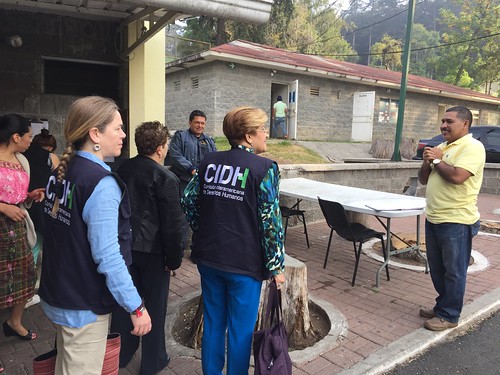
The Rapporteurship on the Rights of the Child of the Inter-American Commission on Human Rights (IACHR) carried out a working visit to Guatemala on March 30-31, 2017. The purpose of the visit was to follow up on the implementation of the precautionary measure that had been granted on March 12 to protect the life and personal integrity of the children and adolescents being housed at the "Virgen de la Asunción" Residential Institution at the time of the fire that occurred on March 8, 2017—including those who suffered various injuries from the fire and those who have been transferred to other locations.
The Inter-American Commission decided to follow up on the actions taken by the State to comply with the precautionary measure. The IACHR took testimony from 36 girls who survived the tragic fire, and visited the "Alida España" School, which is temporarily housing 110 children with disabilities who were taken there from the residential institution after the fire. Consequently, at the end of its visit the IACHR called on the State to encourage and support the reintegration into their families of the children and adolescents who remain at the "Virgen de la Asunción" Residential Institution and other facilities; to continue its investigations into what happened and determine those who are responsible; to review all legislation to undertake a substantive reform of child protection and of the national system to fully guarantee the rights of children and adolescents; and to coordinate the efforts of all government institutions and provide avenues for civil society participation, to respond to the situation and promote a structural change that ensures better conditions for protecting the rights of Guatemalan children.
2015
Mexico, September 28 to October 2, 2015
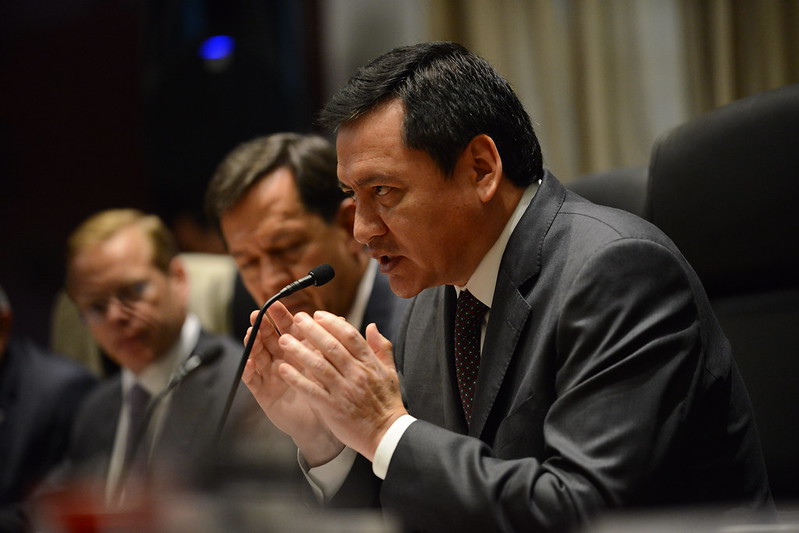
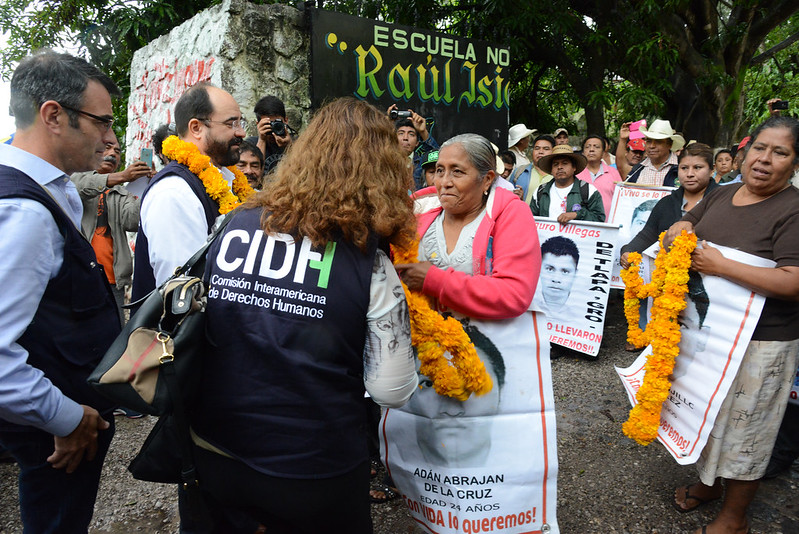

The IACHR carried out an on site visit to Mexico from September 28 to October 2. The Commission has been able to confirm on the ground the serious human rights crisis Mexico is experiencing, which is characterized by a situation of extreme insecurity and violence; serious human rights violations, especially forced disappearances, extrajudicial executions, and torture; critical levels of impunity; and inadequate and insufficient attention to victims and their families. The effect of the violence and violations of fundamental rights is especially serious and disproportionate for people living in poverty, migrants, asylum seekers, refugees, internally displaced persons, women, children, adolescents, human rights defenders, journalists, indigenous peoples, and gays, lesbians, bisexuals, and trans persons (LGBT), among others. Violence against families of victims, human rights defenders and journalists is carried out with the aim of silencing complaints and calls for truth and justice, and perpetuating impunity for gross human rights violations. Violence and intimidation seeks to silence the voices that Mexico most needs.
The Inter-American Commission confirmed the profound gap between the legislative and judicial framework, and the daily reality that millions of people in the country experience. Again and again, throughout the country, the Commission heard from victims that the process of justice is a "simulation." Consequently, at the conclusion of its visit, the Commission expressed it is necessary to address the structural causes of the lack of access to justice in Mexico, such as the infiltration by groups of organized crime in many police bodies, especially at the municipal level, as well as in agencies of the justice system. It is fundamental to strengthen and consolidate judicial independence in Mexico.
2014
Mexico, October 6 - 14, 2014
The Rapporteur on the Rights of Children and Adolescents of the Inter-American Commission on Human Rights (IACHR), Commissioner Rosa María Ortiz, conducted a visit to Mexico between October 6 and 14, 2014. The main objective of the visit was to monitor the human rights of children and adolescents in Mexico, at the federal level and in four states and the Federal District, with particular emphasis on monitoring the systems for the promotion of the rights of girls and boys, as well as the impact of violence and migration on the exercise of their rights. The Rapporteur placed special emphasis on the systems for alternative care and the impact on the rights of homeless children. The Rapporteur also participated in a working meeting on the implementation of the precautionary measures requested by the IACHR of the State in favor of 43 disappeared youths in the city of Iguala.
During the visit, the delegation visited the Federal District, the city of Cuernavaca in Morelos, the city of Oaxaca, in Oaxaca, the city of Saltillo, in Coahuila, and the cities of Nuevo Laredo, Reynosa and "Ciudad Victoria", in the state of Tamaulipas. The Rapporteur met with senior officials of the three branches of government, as well as over one hundred civil society organizations, human rights commissions and victims of human rights violations and their families.
United States, September 29 to October 2, 2014
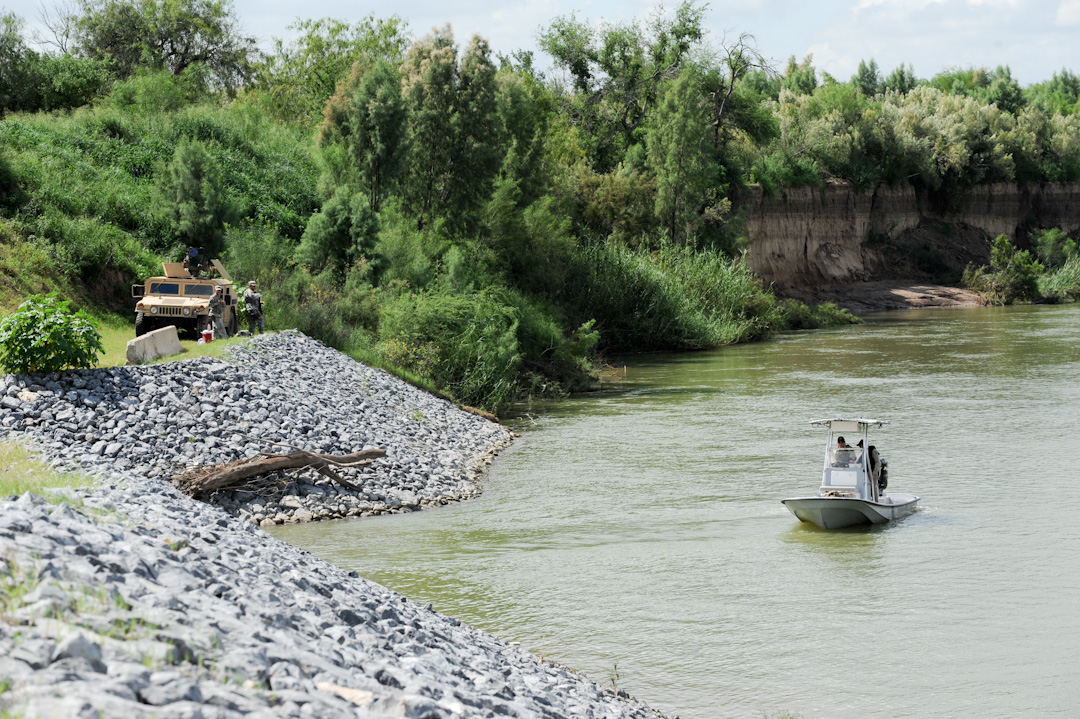
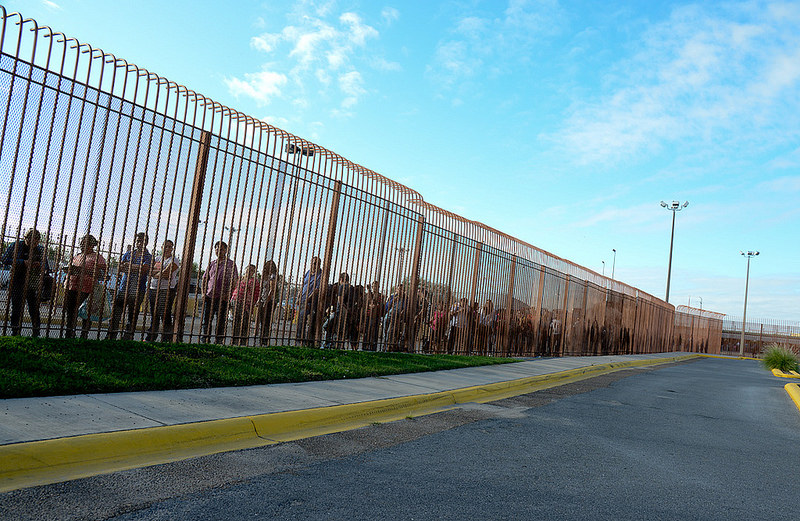
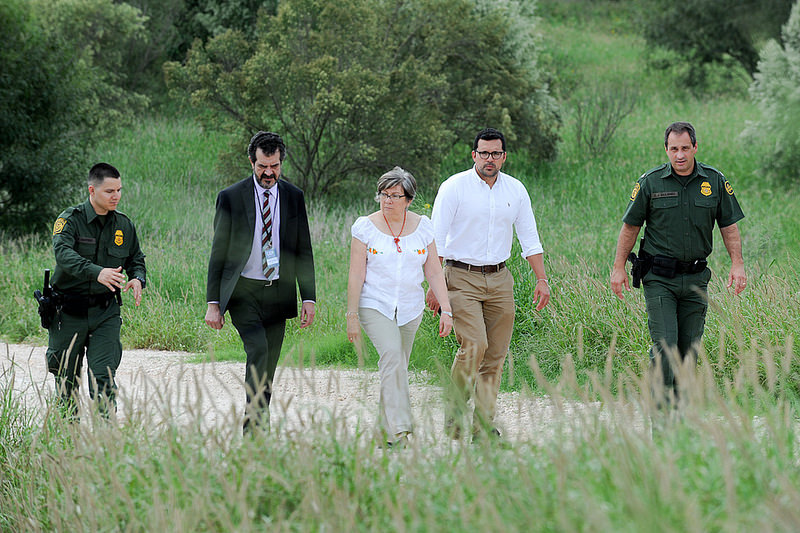
The Inter-American Commission on Human Rights (IACHR) conducted a visit to the southern border of the United States of America, from September 29 to October 2, 2014. The delegation was headed by Commissioner Felipe González Morales, Rapporteur on the Rights of Migrants and the Country Rapporteur for the United States, and Commissioner Rosa María Ortiz, Rapporteur on the Rights of the Child.
The purpose of this visit was to monitor the human rights situation of unaccompanied children and families who have crossed the southern border of the United States, with respect of their apprehension, immigration detention over long periods of time, immigration procedures as well as deportations and removals. During the visit, the IACHR delegation visited Hidalgo, McAllen, Harlingen, Karnes City and San Antonio. The Commission held meetings with state authorities, civil society organizations, victims of human rights violations and consulates of El Salvador, Guatemala and Honduras.
United States, April 7 - 10, 2014
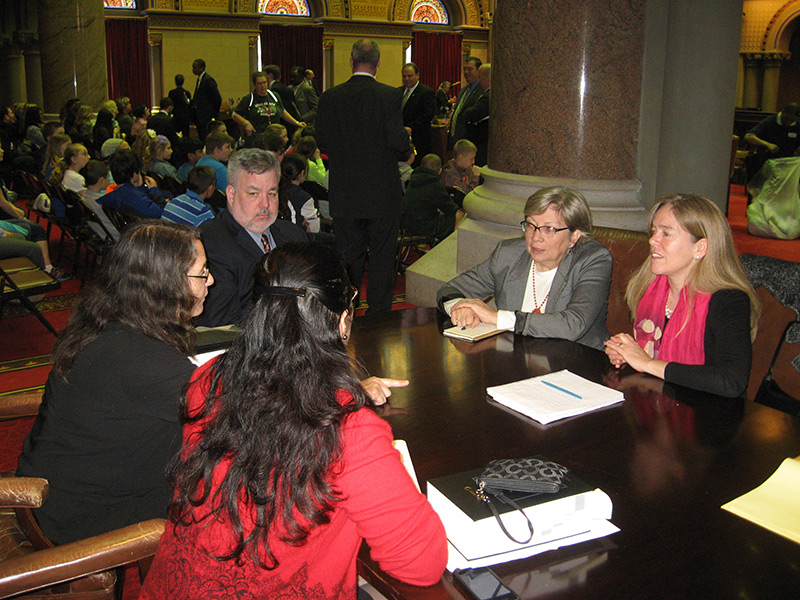
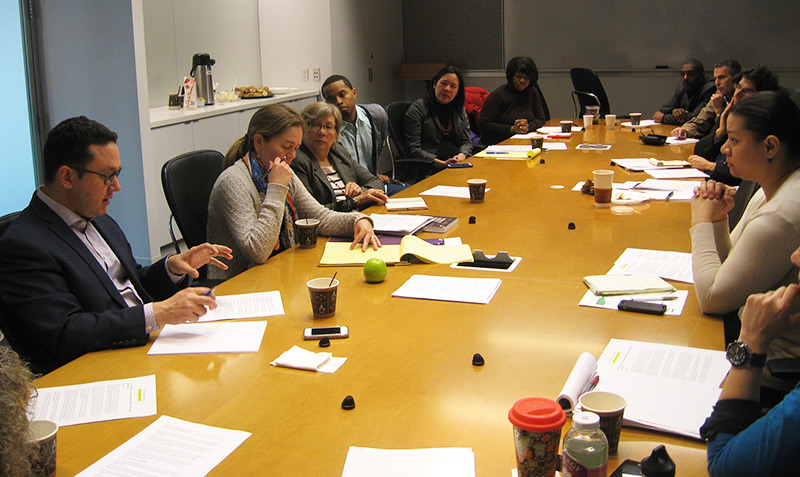
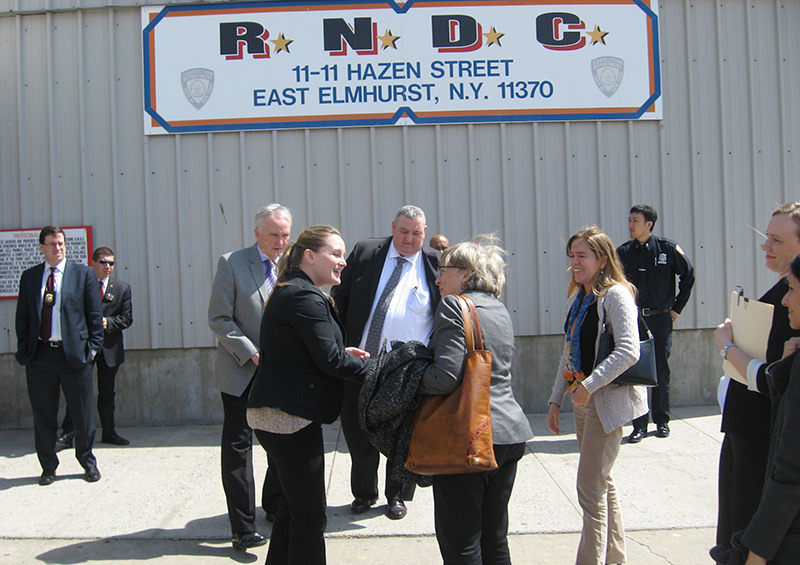
The Inter-American Commission on Human Rights (IACHR) conducted a visit to New York, United States, from April 7 to 10, 2014. The delegation was led by the IACHR Rapporteur on the Rights of the Child, Commissioner Rosa Maria Ortiz, accompanied by staff attorneys of the Executive Secretary of the IACHR from the Office of the Rapporteurs on the Rights of the Child and Adolescents and on the Rights of Persons Deprived of Liberty. The delegation talked to state authorities in Albany including Acting Commissioner of the New York Department of Corrections, Anthony Annucci, with the Chair of the Correction Committee of the State Assembly, Danny O´Donnell, and was welcomed by the New York State Assembly. The delegation also met city officials in New York City, including Member of the NYC Board of Corrections Bryanne Hamill and Executive Director Cathy Potler. In addition, they also received information from the Assistant Commissioner of the Correctional Health Services, Homer Venters. The delegation visited the Robert N. Davoren Complex (RNDC) in Rikers Island jail in New York City. The Rapporteur was welcomed by the Commissioner of the New York City Department of Corrections, Joseph Ponte, and the Warden of the Complex, James Perrino, as well as the Deputy Director for Strategic Planning and the complex's school principal and other high ranking officials from the NYC Department of Corrections and the Mayor's Office.
2013
Dominican Republic, February 23 to March 2, 2013
Commissioner Rosa María Ortiz was invited to participate in a workshop by the Coalición de ONG’s por la Infancia in the Dominican Republic. She was invited in her capacity as Rapporteur on the Rights of the Child. The Rapporteur also participated in the presentation of the IACHR’s Report on Corporal Punishment and Human Rights of children and adolescents and a follow up on the Report on Juvenile Justice in the Americas, with UNICEF. The Rapporteur also had several meetings with State Authorities, international organizations and civil society members in which she discussed issues related to the rights of the child.
2012
Haiti, February 27 to March 2, 2012
Commissioner Ortiz, in her capacity as Rapporteur on the Rights of the Child, was invited by UNICEF to participate, along with the Chairman of the Committee on the Rights of the Child of the United Nations, on an observation visit on the issue of international adoptions in Haiti. The visit took place February 27 and 28. Also, from February 29 to March 2, Commissioner Ortiz, in her capacity as Rapporteur for Haiti, together with a staff member of the Executive Secretariat, held meetings with authorities, international agencies, and civil society, in which she introduced herself as the new Rapporteur and collected information on various issues.
2009
Chile, November 25 - 26, 2009
On November 25 and 26, 2009, Commissioner Paulo Sérgio Pinheiro, in his capacity as Rapporteur on the Rights of Children, made a two-day visit to Chile at the invitation of the Chilean Network of Childhood and Youth NGOs and with the support of UNICEF. The purpose of the visit was to promote the IACHR’s report on “Corporal Punishment and the Human Rights of Children and Adolescents.” The Rapporteur presented the report to a range of bodies, including: La Frontera University, in the city of Temuco, where he also met the rector and representatives of the Citizens’ Observatory, of the Ethical Commission against Torture, and the Network of Childhood and Youth NGOs; and the Law School of Andrés Bello University in Santiago, at a colloquium that was attended by representatives of various international agencies, including the United Nations Committee on the Rights of the Child and the Latin American and Caribbean Network for the Defense of the Rights of Children and Adolescents.
During his visit Rapporteur Pinheiro also met with the representative of UNICEF in Chile, and he attended the municipality of Prado’s launch of its guidebook Violence Hurts Families, published by the Chilean government’s Solidarity and Social Investment Fund (FOSIS) and UNICEF.
Haiti, May 24 - 29, 2009
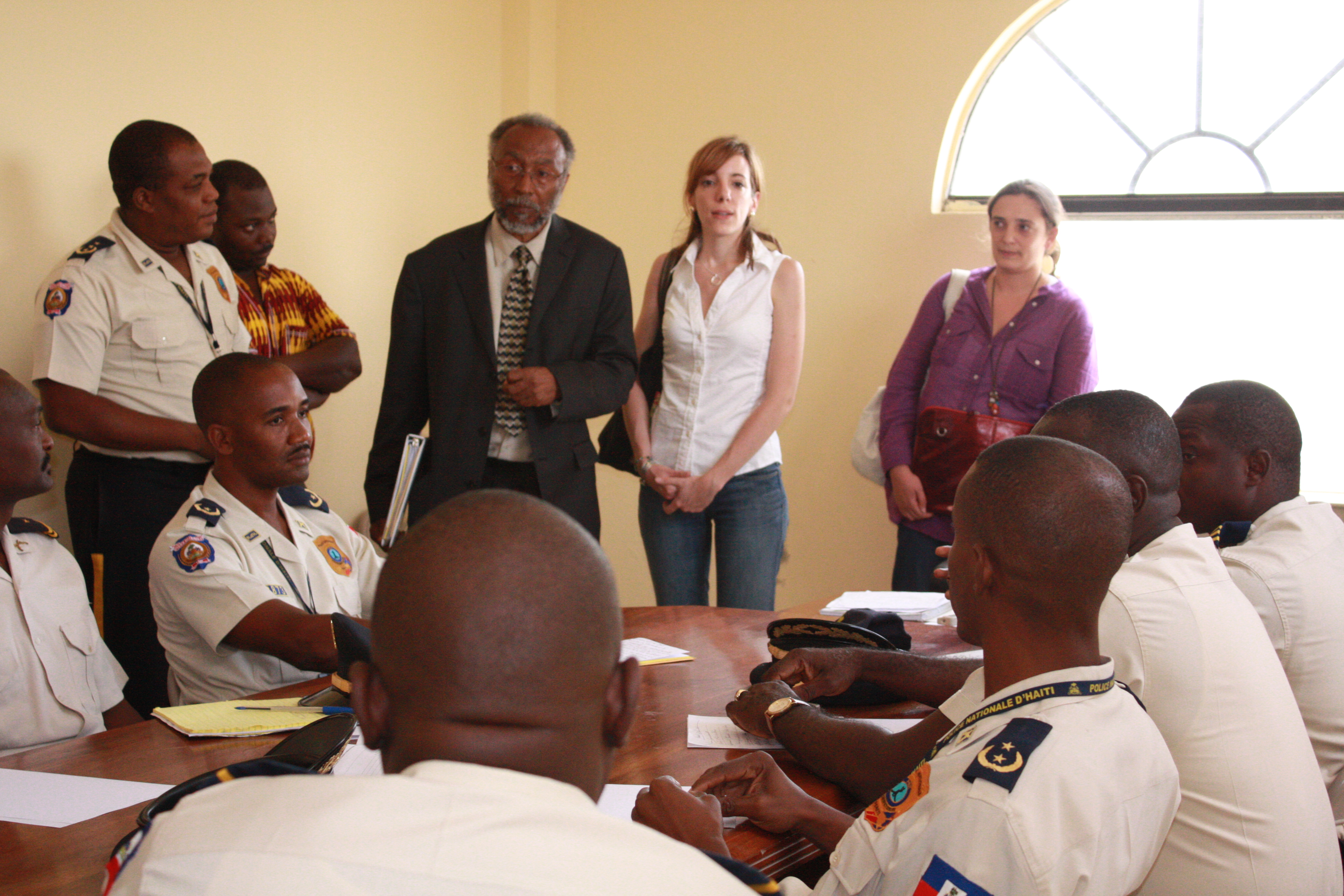
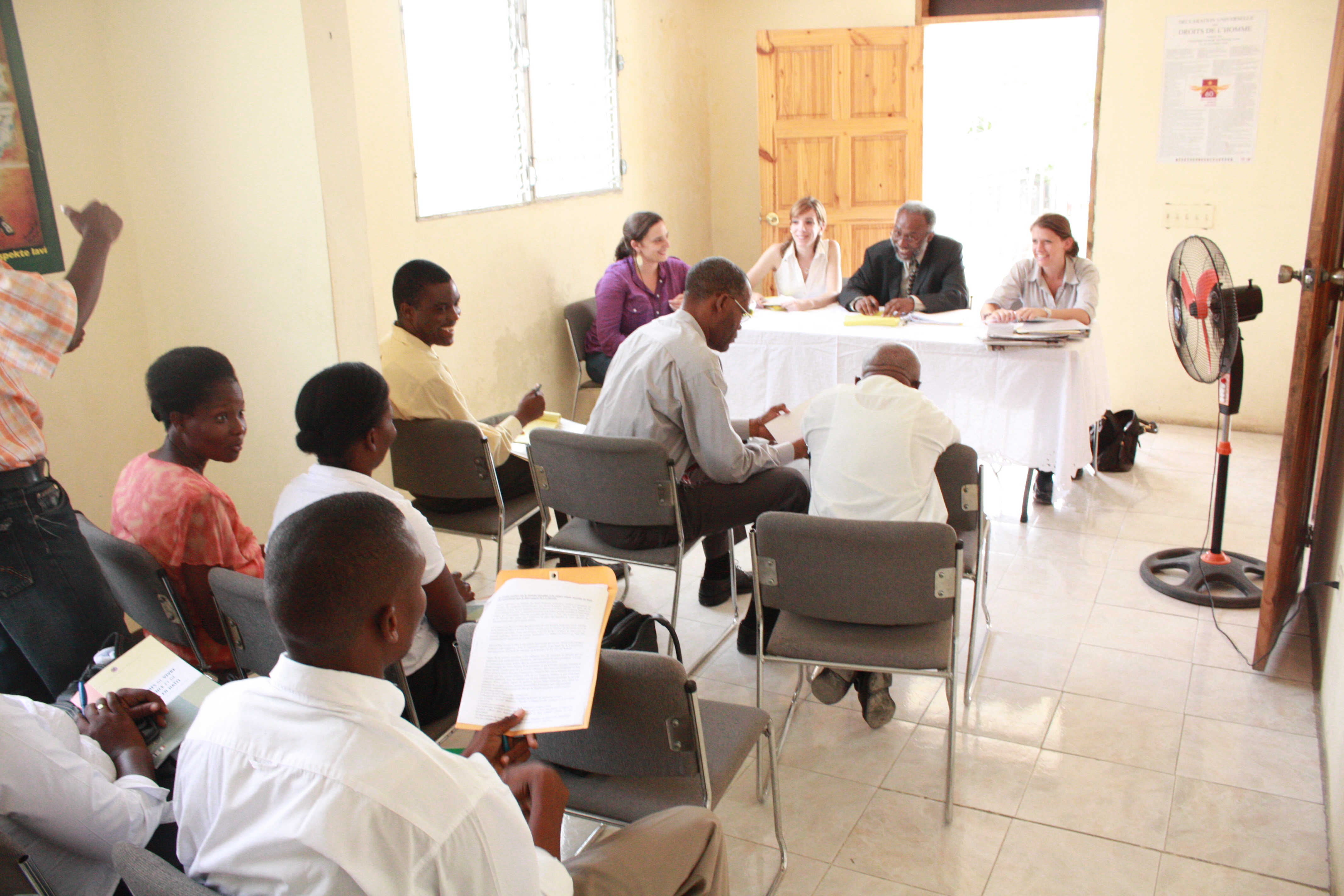
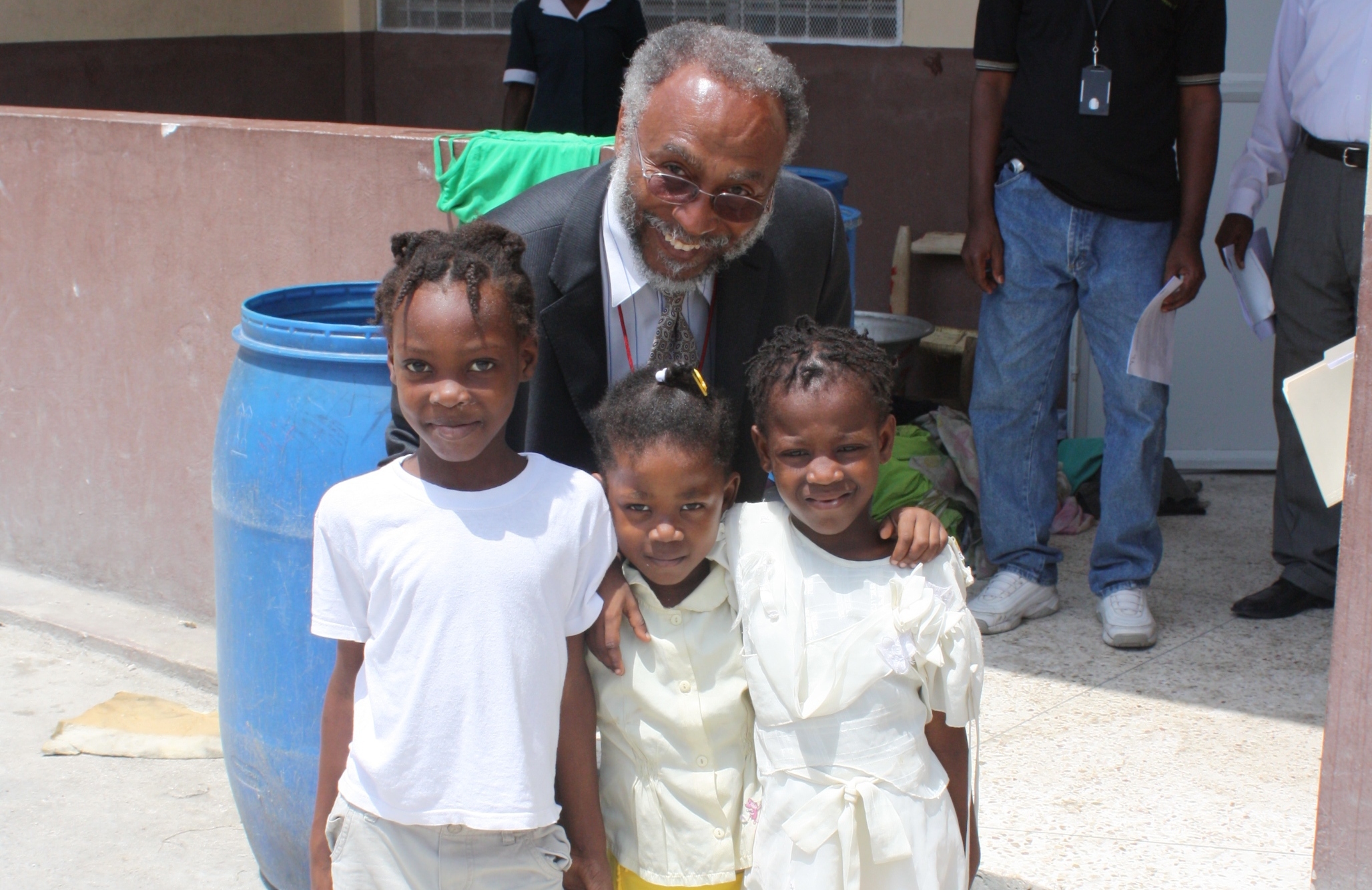
The IACHR conducted a working visit to Haiti May 24-29, 2010. The delegation was led by Commissioner Clare K. Roberts, in his capacity as IACHR Rapporteur for Haiti, and also included human rights specialists Angelita Baeyens and Marie Claude Fornier, as well as Begoña Arellano of UNICEF. The main purpose of the visit was to collect information about citizen security, the human rights situation, and juvenile justice. The visit was organized as part of a joint effort with UNICEF, the regional office of the United Nations High Commissioner for Human Rights, and the IACHR, in order to prepare special reports on the aforementioned subjects.
In Port-au-Prince, the delegation met with representatives of the Ministry of Foreign Affairs, the Ministry of Social Affairs and Labor, the Institute of Social Welfare and Research (IBESR), the Minors Protection Division of the Haitian National Police, the Central Direction of the Judiciary Police, the Penitentiary Administration, prison staff, and the Office of Citizen Protection. The delegation also met with two members of the Tribunal for Children. The delegation visited the main office of the United Nations Stabilization Mission in Haiti (MINUSTAH). It also met with local and international nongovernmental organizations involved in citizen security and juvenile criminal justice issues in Haiti. In addition, the delegation participated in a conference on the IACHR and the inter-American system for the protection of human rights at the State University in Port-au-Prince.
During this working visit, the delegation visited the Haitian National Penitentiary, the Delmas Police Station, the Delmas Detention Center for Minors, the Pétion-Ville Women’s Prison, and the Le Carrefour Shelter for children in Port-au-Prince. On May 27, 2009, the delegation traveled to the city of Gonaïves where it met the Government Commissioner, the Chief of Police, and representatives of civil society. It visited the police station there, which, following a fire at the local prison in 2004, is being used to house detainees and in connection with which the IACHR granted precautionary measures in June 2008.
On June 29, 2009, the IACHR published a press release on its visit to Haiti.
Bahamas, May 1, 2009
Eastern Caribbean and The Bahamas, May 2009
A subregional meeting on juvenile justice was held for the Eastern Caribbean and The Bahamas in May, with the support of the UNICEF subregional office. Participants in the meeting included Rapporteur Pinheiro, as well as representatives of the Governments of Antigua and Barbuda, The Bahamas, Barbados, Dominica, Grenada, St Kitts and Nevis, St Lucía, and St Vincent and the Grenadines.
2008
Colombia, September 15 - 19, 2008
From September 15 to 19, 2008, the Rapporteur on the Rights of the Child, Paulo Sérgio Pinheiro, visited Bogotá to meet with authorities in charge of childhood issues and representatives of civil society, and also to take part in a seminar on “City, Conflict, and the Public Sphere: The Latin American Perspective,” organized by UNICEF on from September 17 to 19. The Rapporteur also held meetings with representatives of the Attorney General’s Office, the Ombudsman, the Office of the United Nations High Commissioner for Refugees, and the Alliance for Early Childhood, among other organizations.
Argentina, August 20 - 22, 2008
From August 20 to 22, 2008, the Rapporteur on the Rights of the Child, Paulo Sérgio Pinheiro, visited Buenos Aires, Argentina, where he met with government authorities and representatives of civil society organizations. During this visit, the Rapporteur made a presentation on the issue of “Challenges for the Full and Effective Compliance in the Hemisphere of the Optional Protocol to the Convention on the Rights of the Child on the sale of children, child prostitution and child pornography”; this was part of the Preparatory Meeting for the World Congress III on Sexual Exploitation which was held in the Argentine capital from August 19 to 22.
Uruguay, August 19, 2008
On August 19, 2008, the Rapporteur on the Rights of the Child, Paulo Sérgio Pinheiro, visited Montevideo, Uruguay, where he met with representatives of the Ministry of Education and Culture, UNICEF, and the Committee on the Rights of the Child–Uruguay.
2007
Brazil, August 21 - 22, 2007
In the context of preparing a special report on juvenile justice in the Americas, intended to identify obstacles and strengths encountered in the national specialized juvenile justice systems, the Rapporteur for Children’s Rights, Paulo Sérgio Pinheiro, organized two working meetings to evaluate the content of a proposed questionnaire for use in preparing that report. These meetings were held in Sao Paulo, Brazil, on August 21 and 22, 2007. On the first day, a meeting was held with regional experts and officials from the United Nations Children’s Fund (UNICEF) on the topic of juvenile justice; and on the second day, Commissioner Pinheiro and the Secretariat’s delegation met with representatives from civil society organizations working in this area.
2006
Bolivia, November 12 - 17, 2006
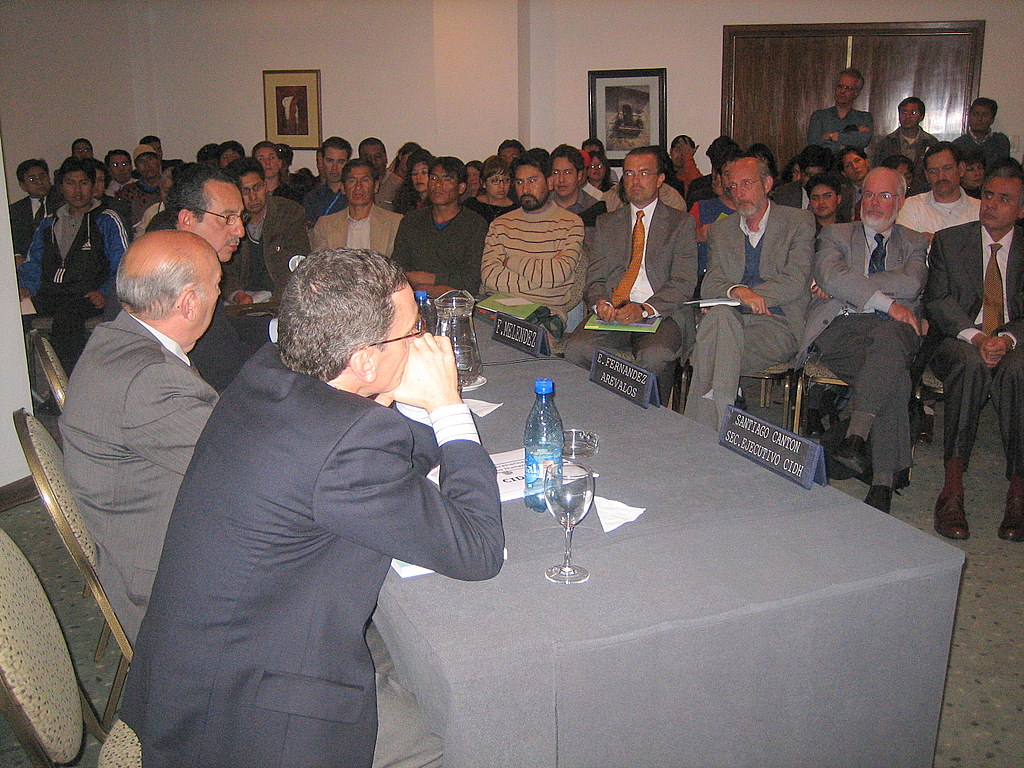
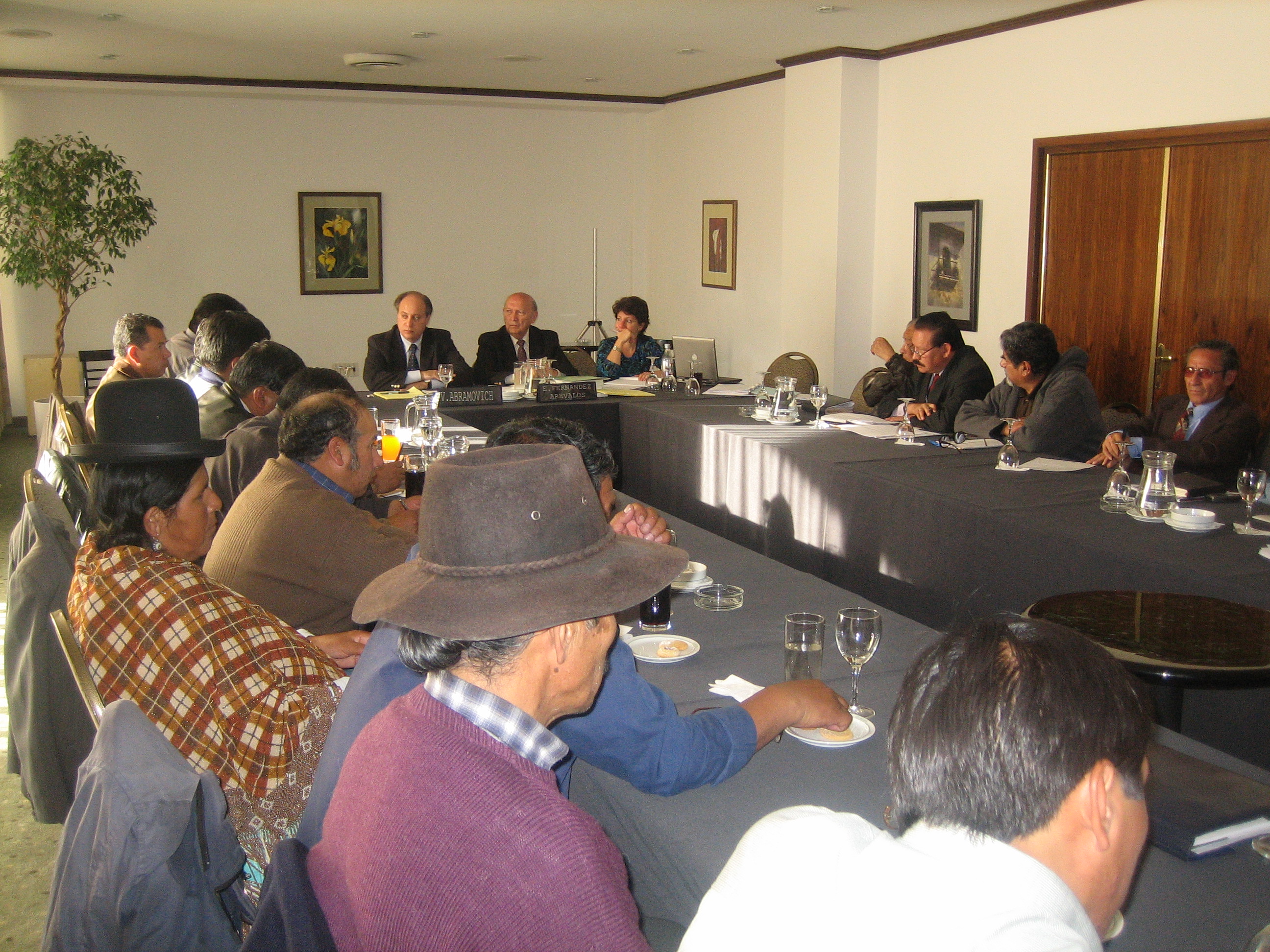
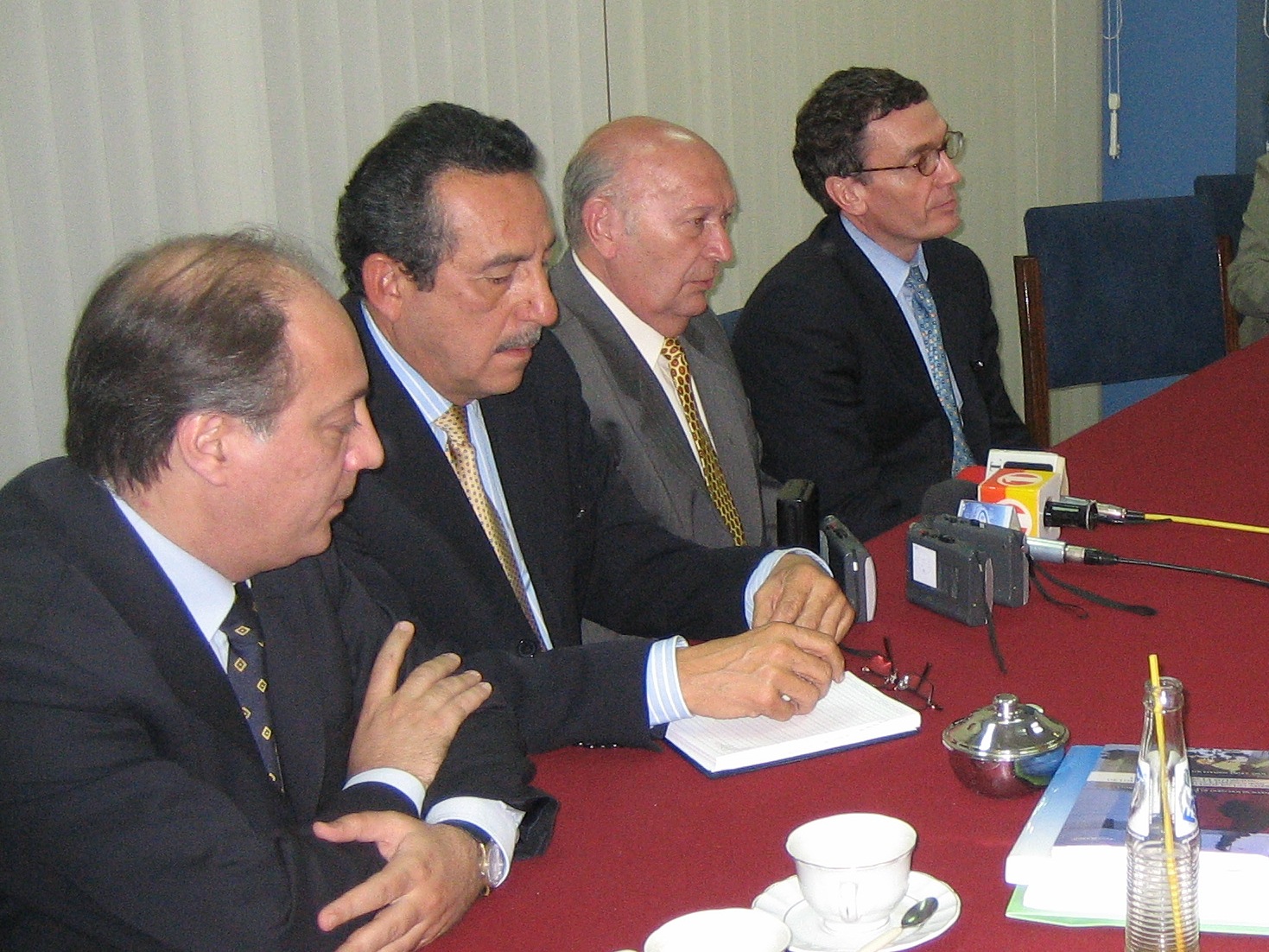
Following an invitation by the government, the Commission carried out a visit to the Republic of Bolivia November 12-17, 2006, in order to observe the general human rights situation in that country. The Commission delegation was made up of its Chair, Evelio Fernández Arévalos; its Second Vice-Chair and Rapporteur for Bolivia, Florentín Meléndez; Commissioner Víctor Abramovich; the Executive Secretary, Santiago A. Canton; human rights specialists Débora Benchoam, Silvia Serrano, and Leonardo Hidaka; and document technician Gloria Hansen.
During its stay in Bolivia, the Commission met with government authorities and held meetings with various segments of civil society. These included representatives of organizations promoting the rights of indigenous peoples, the rights of women, the rights of children, and the rights of persons deprived of liberty; representatives of campesino organizations and organizations devoted to strengthening the administration of justice; journalists; and trade union members.
At the end of its visit, the IACHR issued Press Release 46/06 . On June 28, 2007, the IACHR approved the report Access to Justice and Social Inclusion: The Road towards Strengthening Democracy in Bolivia , which was published on August 7, 2007 . In its 2009 Annual Report, the IACHR published a Follow-Up Report in which it analyzes the State’s compliance with the report’s recommendations.
Paraguay, April 1, 2006
The Special Rapporteur on Children, Commission member Paulo Sérgio Pinheiro, visited the Republic of Paraguay in April of 2006 at the invitation of the Government of that country. During the visit the Rapporteur gathered information on the situation of street children in Ciudad del Este (a town in the interior of the country, near the border with Argentina and Brazil). Additionally, the Rapporteur met with street children, with human rights organizations that work on issues related to the rights of children and adolescents, and also with the Minister of Foreign Affairs, the Supreme Court, and various local and national authorities.
2005
Haiti, November 2 - 5, 2005
A third visit to the Republic of Haiti was conducted from November 2 to 5, 2005 by the Commission together with UNICEF’s Regional Office for Latin America and the Caribbean. The delegation was headed by Paulo Sérgio Pinheiro, IACHR Commissioner and Children’s Rapporteur and the United Nations Secretary General’s Independent Expert for the Global Study on Violence against Children, and by María Jesús Conde, UNICEF’s Regional Advisor on Child Protection for The Americas and the Caribbean. During its visit, the delegation met with the Minister of Justice, United Nations agencies, representatives of international organizations and of civil society, and with Haitian children and adolescents. The delegation also visited children’s detention centers and the border with the Dominican Republic. At the end of its November visit, the delegation expressed its profound concern at the grave violations of the human rights of Haitian children and adolescents being committed as part of the ongoing violence in the country and drew attention to the effects on children of the lack of an adequate justice system.
- Press Release 37/05 – IACHR and UNICEF Regional Office in Latin American and the Caribbean conclude their visit to Haiti
- Press Release 36/05 – IACHR and UNICEF Regional Office in Latin America and the Caribbean to conduct a visit to Haiti
2004
El Salvador, Guatemala, and Honduras, December 4, 2004
On December 4, 2004, the Commission and the United Nations Children’s Fund (UNICEF) undertook a joint visit to El Salvador, Guatemala and Honduras. The IACHR delegation was comprised of the Rapporteur on Children, Commission member Paulo Sérgio Pinheiro, and the Special Rapporteur on the Rights of Detained Persons, Commissioner Florentín Meléndez, assisted by staff of the Commission’s Secretariat. UNICEF was represented by Dr. María Jesús Conde, Child Protection Adviser for Latin America and the Caribbean. The main objectives of the visit were to gather information on the situation of boys, girls, and adolescents involved with groups known as maras or pandillas (gangs), and to study the living conditions of persons deprived of freedom.
At the conclusion of the visit, the IACHR and UNICEF expressed concern over the human rights situation of thousands of boys, girls, and adolescents who belong to the maras or pandillas, or did so in the past. While indicating that they were aware of the violence and insecurity caused by the gangs and offering their solidarity to the victims of such actions, the Commission and UNICEF also emphasized that the right and the obligation of states to ensure public safety are not incompatible with respect for human rights, including in particular the special protections to which children are entitled under international law and international norms and principles governing the treatment of detainees and prisoners.
- Press Release 26/04 - IACHR and UNICEF express concern over situation of boys, girls and adolescents involved with gangs in el Salvador, Guatemala, and Honduras





